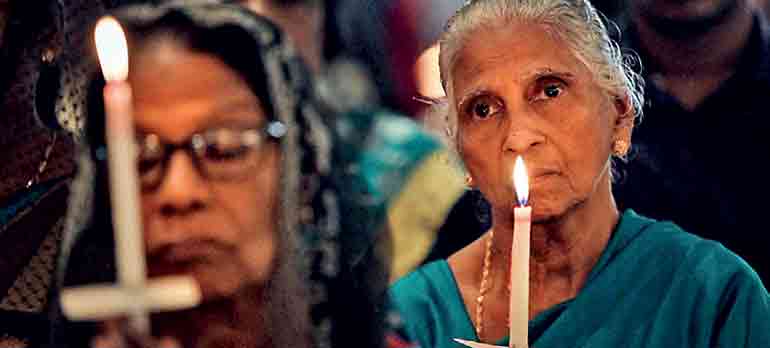
Justice delayed has not only compounded victims’ suffering but has also damaged institutional credibility
Purpose
To analyse the justice delays and inconsistencies following the 2019 Easter Sunday attacks, and to propose policy measures to strengthen the rule of law, enhance prosecutorial and judicial independence, and restore public trust in Sri Lanka’s criminal justice system.
Background
- The Easter Sunday terrorist attacks in April 2019 killed over 260 people and injured hundreds.
- Despite extensive investigations, justice for victims remains delayed.
- Inconsistencies in prosecutorial decisions by the Attorney General’s Department, coupled with judicial delays, have raised questions about political interference, institutional weakness, and erosion of public trust.
This case has become a litmus test for the credibility of Sri Lanka’s criminal justice system.

1. Rule of law under strain
- Justice must be equal, timely, and free from political influence.
- Prolonged delays have weakened the principle of equality before the law.
2. Law enforcement challenges
- Investigations identified key suspects, but allegations of selective targeting and poor evidence management persist.
- Coordination gaps between police and prosecution undermine case strength.
3. Attorney General’s Department
- The AG’s independence is questioned due to inconsistent decisions on suspects.
- Lack of transparency in prosecutorial choices fuels public suspicion.
4. Judiciary and delayed justice
- Courts have been slow to adjudicate, compounding victims’ frustration.
- Perception of judicial reluctance in politically sensitive cases undermines independence.
5. Erosion of public trust
- Survivors and families perceive justice as politicised and stagnant.
- Declining trust risks weakening social cohesion and democratic legitimacy.
Policy recommendations
1. Fast-track mechanisms for high-impact cases
- Establish special terrorism and complex crimes courts with statutory timelines.
- Ensure judges and prosecutors receive specialised training.
2. Strengthening law enforcement capacity
- Develop specialised terrorism case units within police.
- Enhance forensic and digital investigation capabilities.
- Introduce independent oversight mechanisms for sensitive investigations.
3. Reforming the Attorney General’s Department
- Introduce an independent appointments and oversight process for senior AG officials.
- Mandate annual public reporting of prosecutorial decisions for transparency.
- Strengthen constitutional guarantees of prosecutorial independence.
4. Judicial efficiency and independence
- Establish dedicated benches for terrorism and organised crime.
- Implement case management systems to reduce delays.
- Ensure judicial performance monitoring with accountability for excessive delay.
5. Restoring public confidence
- Create a Truth and Accountability Commission to complement criminal trials.
- Provide regular public updates on case progress.
- Strengthen victim-centred justice measures: legal aid, psychological support, and participation rights in proceedings.
Reform is urgent
- A fast, fair, and transparent justice process is essential to uphold the rule of law.
- Independent institutions are the cornerstone of democratic stability.
- Restoring public trust requires visible accountability and victim-centred justice.
Conclusion
The Easter Sunday case demonstrates a critical breakdown in the alignment of law enforcement, prosecution, and judiciary. Justice delayed has not only compounded victims’ suffering but has also damaged institutional credibility. Reform is urgent: a fast, fair, and transparent justice process is essential to uphold the rule of law, restore public trust, and ensure democratic stability. Failure to act decisively will leave the Easter Sunday tragedy remembered not only as an act of terror but as a failure of justice in Sri Lanka
(The writer is a Senior Law Enforcement and Intelligence Specialist, former Head of Counter-Terrorism – State Intelligence Service, First Secretary (Defence), Embassy of Sri Lanka in Thailand, and present member of the Sri Lanka Waqfs Board.)

